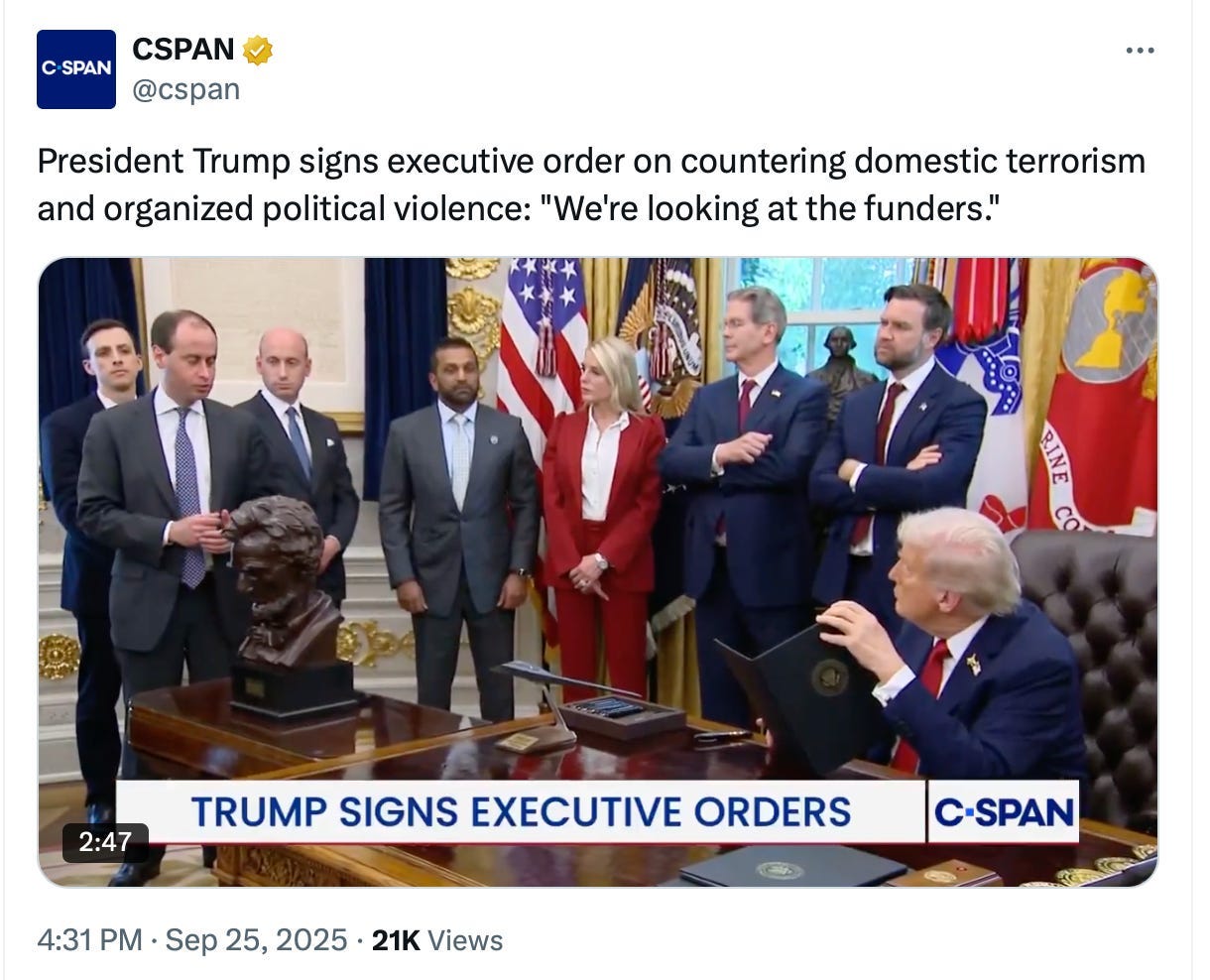Bonus 180: "Domestic Terrorism" and NSPM-7
The Trump administration is hoping no one notices that, although federal law *defines* "domestic terrorism," it provides no special authorities against anyone whose behavior *meets* that definition.
Welcome back to the weekly bonus content for “One First.” Although Monday’s regular newsletter will remain free for as long as I’m able to do this, I put much of the weekly bonus issue behind a paywall as an added incentive for those who are willing and able to support the work that goes into putting this newsletter together every week. I’m grateful to those of you who are already paid subscribers, and I hope that those of you who aren’t will consider a paid subscription if and when your circumstances permit:
I wanted to use this week’s bonus issue to focus on a new executive action that could end up in the Supreme Court, but isn’t yet in the pipeline: a memorandum President Trump signed last Thursday, titled “Countering Domestic Terrorism and Organized Political Violence,” which reflects a dramatic escalation in the Trump administration’s efforts to cast a whole lot of constitutionally protected speech and political activity as unlawful “political violence and intimidation.”
In particular, the memorandum, formally “National Security Presidential Memorandum-7” (NSPM-7), purports to direct the Attorney General, the Secretary of Homeland Security, and a host of other Cabinet officers to bring significant federal investigative and law enforcement resources to bear in ferreting out alleged criminal activity by “domestic terrorist organizations.” There’s just one small problem: Although federal law does include a definition of “domestic terrorism,” Congress, for reasons that are now paying some serious dividends, has assiduously avoided attaching any downstream consequences to the government’s assertion that specific behavior meets that definition. Unlike “foreign terrorist organizations,” for which Congress has created an entire regime of civil and criminal liability, labeling a group a “domestic terrorist organization” exposes it and its supporters to precisely zero additional civil or criminal liability.
That’s not to say NSPM-7 is harmless or toothless—far from it. But in some ways, that’s exactly the point: The Trump administration is trying to scare, intimidate, cajole, and harass a wide array of non-governmental (and non-profit) organizations into self-censoring—lest they risk triggering the investigations and potential prosecutions the memorandum threatens. NSPM-7 doesn’t create any new crimes. And the government doesn’t need NSPM-7 to investigate any of these groups if there’s reason to believe they’ve committed crimes that already exist. Thus, the specter of labeling groups “domestic terrorist organizations” is an exercise in legally empty but rhetorically dangerous symbolism—one that is trying to coerce more and more individuals and groups to “obey in advance,” even though there are no new substantive rules that they need to actually obey.
For those who are not paid subscribers, we’ll be back Monday (if not sooner) with our latest coverage of the Court. For those who are, please read on.



